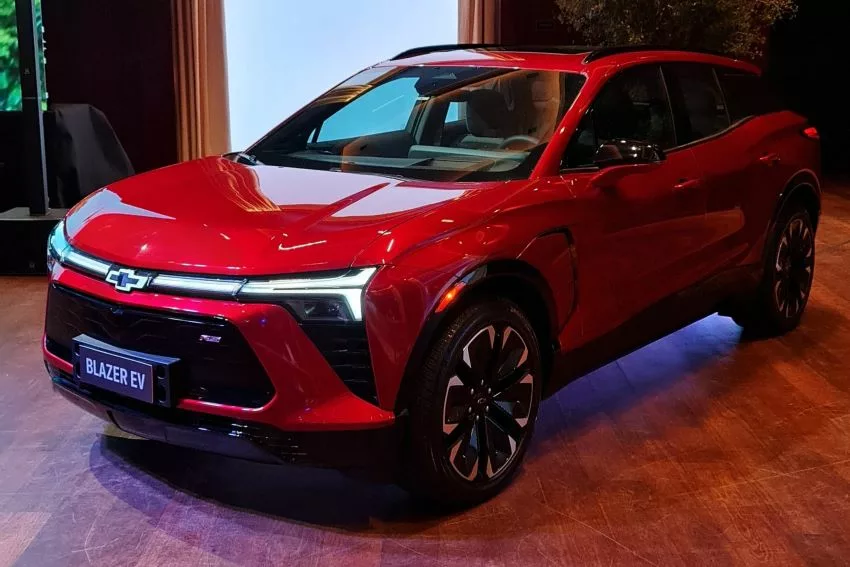In the rapidly evolving world of automotive technology, 2024 is shaping up to be a pivotal year. According to a recent report by Bloomberg Green, electric vehicle (EV) sales are projected to surpass 50% of global new car sales by 2030. But as we stand today, the battle between EVs, hybrids, and traditional gas cars continues to heat up. In this article, we’ll delve into the latest innovations and market shifts defining each category, and help you decide which vehicle might be the best fit for your lifestyle.
The Rise of Electric Vehicles in 2024
Technological Innovations in EVs
Electric vehicles are no longer just the future—they’re the present. In 2024, EV manufacturers are pushing boundaries with significant advancements:
- Battery Technology: Companies like Tesla and BYD are leading the charge. Tesla’s new 4680 battery cells promise to increase range by 16% and reduce costs by up to 56%. Meanwhile, BYD’s Blade Battery, with its improved safety and durability, is set to redefine EV standards.
-
Charging Infrastructure: According to InsideEVs, the number of fast charging stations worldwide has increased by 40% in the past year. Major players like Volkswagen and Hyundai are investing heavily in expanding this infrastructure, making long road trips more feasible than ever.
-
Autonomous Driving: Brands such as Rivian and Lucid Motors are integrating advanced AI systems for enhanced driving experiences. Lucid’s DreamDrive Pro, for instance, offers over 30 driver assist features.
Market Trends and Consumer Preferences
-
Affordability: With more affordable models entering the market, like the Nissan Leaf and Ford’s Mustang Mach-E, consumers have more choices than ever. According to Reuters Mobility, the average price of an EV is expected to drop by 20% by the end of 2024.
-
Sustainability: As sustainability becomes a priority, consumers are gravitating towards EVs to reduce their carbon footprints. The International Energy Agency (IEA) reports that switching to EVs can cut individual carbon emissions by up to 50%.
Hybrids: A Middle Ground Solution
Innovations in Hybrid Technology
Hybrids continue to offer a bridge for those not ready to fully commit to electric:
- Improved Fuel Efficiency: The latest models from Toyota and Honda boast fuel efficiencies exceeding 50 miles per gallon. Toyota’s new Prius Prime, for example, claims a combined range of over 600 miles.
-
Regenerative Braking Systems: These systems capture energy typically lost during braking and convert it back into usable power, enhancing fuel economy. TechCrunch highlights this as a major draw for hybrid users.
Market Shifts and Consumer Behavior
-
Versatility: Many consumers appreciate the flexibility hybrids offer, providing both electric and gas options. This dual capability is particularly appealing in regions with less developed EV infrastructure.
-
Cost Considerations: While hybrids can be more expensive upfront than traditional gas vehicles, long-term savings on fuel and maintenance can offset initial costs.
Gasoline Cars: Holding Their Ground
Innovations in Gasoline Engines
Despite the electric revolution, gas cars still hold significant market share:
- Engine Efficiency: Advances in internal combustion engine (ICE) technology have made gas cars more efficient than ever. According to AutoCar, new turbocharging techniques and lightweight materials have improved fuel consumption by 15%.
-
Performance: For many enthusiasts, gas cars remain synonymous with power and performance. Brands like Ford and Nissan continue to release high-performance models that cater to speed enthusiasts.
Market Dynamics
-
Availability and Cost: Gas cars remain the most available and affordable option in many parts of the world. According to CleanTechnica, they still account for over 70% of global car sales.
-
Infrastructure: With an established refueling network, gas cars offer unparalleled convenience for long-distance travel without the wait times associated with charging stations.
Practical Guide: Choosing the Right Vehicle for You
Considerations for Buyers
-
Driving Habits: If you primarily drive short distances, an EV might suit you best. For those frequently embarking on long journeys, a hybrid or gas car could be more practical.
-
Budget: Assess not just the purchase price, but also the total cost of ownership, including fuel, maintenance, and potential tax incentives for EVs and hybrids.
-
Environmental Impact: If reducing carbon emissions is a priority, EVs and hybrids are the more sustainable choices.
-
Infrastructure: Consider the availability of charging stations or gas stations in your area.
Where to Buy and What to Compare
-
Dealerships and Online Platforms: Explore local dealerships for test drives. Platforms like Carvana and AutoTrader offer extensive listings for both new and used vehicles.
-
Comparison Tools: Use tools from sites like Edmunds or Kelley Blue Book to compare specifications, prices, and consumer reviews.
Conclusion: The Road Ahead
As we navigate the automotive landscape of 2024, the choice between EVs, hybrids, and gas cars becomes increasingly nuanced. Each option offers unique benefits, driven by technological advancements and shifting consumer priorities. Whether you prioritize sustainability, cost, or convenience, understanding these innovations and market shifts can guide you to the right decision.
So, what will you choose for your next vehicle? With the automotive industry evolving at such a rapid pace, staying informed is more crucial than ever. As you consider your options, remember that the future of transportation is not just about getting from point A to B—it’s about doing so in the most efficient, economical, and environmentally friendly way possible.

